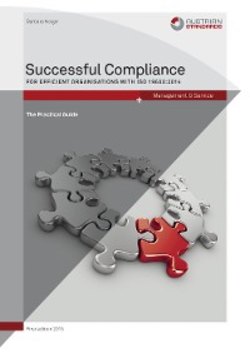Читать книгу Successful Compliance - Barbara Neiger - Страница 11
1.2LEGAL FRAMEWORK FOR COMPLIANCE IN ORGANSATIONS
ОглавлениеSocietas delinquere non potest – corporations cannot be held criminally responsible – so describes the principle that only natural persons can commit criminal acts, while legal entities are incapable of committing offences.[3] While Anglo-Saxon law (common law in the UK, USA and other countries) has long made no distinction between natural persons and legal entities, only developments within the last 20 years have led to the establishment of liability for legal entities in continental European states too.[4] Numerous intergovernmental legislative acts both inside and outside the EU obligate member states and treaty states to provide for the liability of legal entities for certain crimes.
The first legislative act within the EU to provide for such an obligation is the Second Protocol to the Convention on the Protection of the European Communities’ Financial Interests,[5] which requires the criminal liability of organisations if fraud, corruption or money-laundering has been committed for their benefit by persons acting either alone or as part of the legal entity’s organisation. Organisations must in particular be made responsible if a lack of supervision or control has made the act possible. In addition to the Second Protocol, there are numerous other legislative acts providing for the liability of legal entities for approximately one hundred criminal offences (e.g. property-related offences such as fraud, embezzlement, misappropriation of subsidies or collusion in procurement procedures; corruption and environmental offences; offences in copyright law, stock exchange law, financial criminal law or the law on unfair competition).[6]
Among legislative acts outside the EU, the OECD Convention on Combating Bribery of Foreign Public Officials in International Business Transactions of 1997 is to be mentioned. The responsibility of legal entities is further governed by three conventions of the European Council (Protection of the Environment, 1998; Prevention of Cyber Crime, 2001; Counterterrorism, 2005). In order to combat money laundering, FATF recommendations require effective, proportionate and deterrent sanctions against legal entities.[7] Finally, the UN Conventions for the Suppression of the Financing of Terrorism (2000) and against Corruption (2005) contain further requirements for the criminal or the administrative liability of legal entities.[8]
